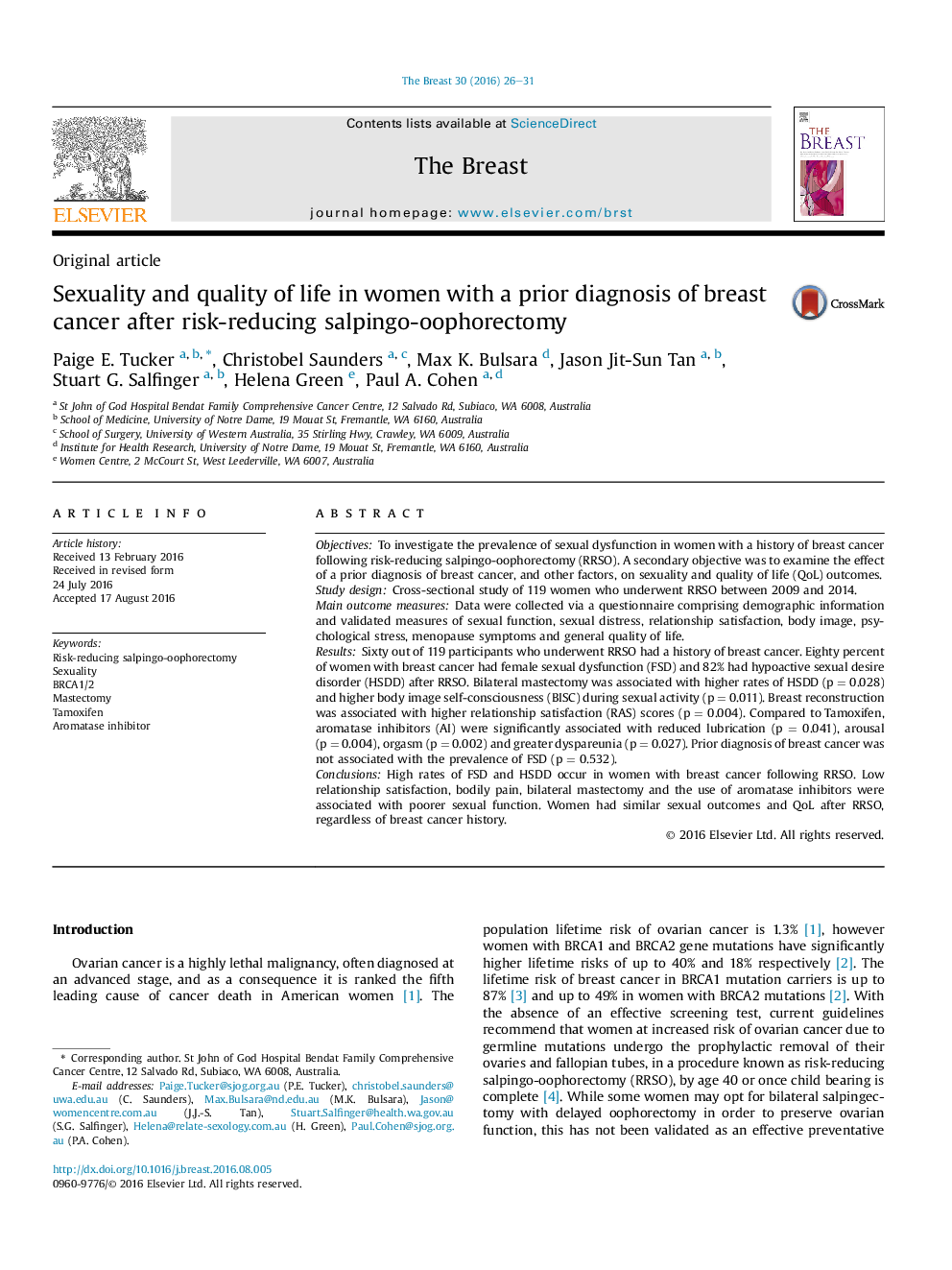| کد مقاله | کد نشریه | سال انتشار | مقاله انگلیسی | نسخه تمام متن |
|---|---|---|---|---|
| 3908188 | 1599350 | 2016 | 6 صفحه PDF | دانلود رایگان |
• Cross-sectional study of 119 women after risk-reducing salpingo-oophorectomy (RRSO).
• Women with breast cancer had similar sexual function to those without breast cancer.
• Bilateral mastectomy associated with hypoactive sexual desire disorder.
• Breast reconstruction associated with greater relationship satisfaction.
• Aromatase inhibitor use associated with poorer sexual function.
ObjectivesTo investigate the prevalence of sexual dysfunction in women with a history of breast cancer following risk-reducing salpingo-oophorectomy (RRSO). A secondary objective was to examine the effect of a prior diagnosis of breast cancer, and other factors, on sexuality and quality of life (QoL) outcomes.Study designCross-sectional study of 119 women who underwent RRSO between 2009 and 2014.Main outcome measuresData were collected via a questionnaire comprising demographic information and validated measures of sexual function, sexual distress, relationship satisfaction, body image, psychological stress, menopause symptoms and general quality of life.ResultsSixty out of 119 participants who underwent RRSO had a history of breast cancer. Eighty percent of women with breast cancer had female sexual dysfunction (FSD) and 82% had hypoactive sexual desire disorder (HSDD) after RRSO. Bilateral mastectomy was associated with higher rates of HSDD (p = 0.028) and higher body image self-consciousness (BISC) during sexual activity (p = 0.011). Breast reconstruction was associated with higher relationship satisfaction (RAS) scores (p = 0.004). Compared to Tamoxifen, aromatase inhibitors (AI) were significantly associated with reduced lubrication (p = 0.041), arousal (p = 0.004), orgasm (p = 0.002) and greater dyspareunia (p = 0.027). Prior diagnosis of breast cancer was not associated with the prevalence of FSD (p = 0.532).ConclusionsHigh rates of FSD and HSDD occur in women with breast cancer following RRSO. Low relationship satisfaction, bodily pain, bilateral mastectomy and the use of aromatase inhibitors were associated with poorer sexual function. Women had similar sexual outcomes and QoL after RRSO, regardless of breast cancer history.
Journal: The Breast - Volume 30, December 2016, Pages 26–31
